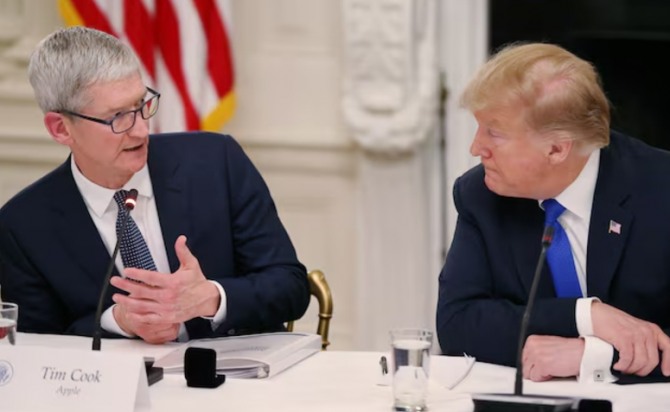◀ Anchor ▶
The Japanese government said it had “done nothing wrong” and instead publicly expressed regret to Korea. So how did our government react to this?
Let alone raising an issue officially, their absence from the memorial service was not meant as a protest.
When asked whether “Japan has broken its promise,” he said, “We need to look into it carefully,” and seemed to defend Japan.
This is reporter Cho Eui-myeong.
◀ Report ▶
Ministry of Foreign Affairs press briefing held this afternoon.
A few hours ago, the Japanese Ministry of Foreign Affairs officially expressed regret toward Korea, but our Ministry of Foreign Affairs did not make any statement.
When asked by reporters whether there were plans to protest or express regret at the government level, the Ministry of Foreign Affairs responded, “We are reviewing it,” and “We are unlikely to make a statement today.”
He also announced that he has no plans to take a position on Japan’s memorial address, which does not contain reflection or apology.
When asked whether Japan had broken its promise at the time of registering Sado Mine to UNESCO, he said, “We will have to carefully examine whether we have broken our promise.”
At the same time, he said that the decision not to attend the memorial ceremony was not a protest against Japan, but simply because “there was not enough time to discuss.”
Even though a far-right figure attended as a representative of the Japanese government and there was no reflection or apology for forced labor at the memorial ceremony, our government’s position is that there is nothing to raise an issue or protest against.
Reporters pointed out that our government’s attitude could be criticized as ‘low-profile diplomacy’, but the Ministry of Foreign Affairs only responded that it was “fully aware.”
Criticism poured in from the opposition party, calling it ‘the worst diplomatic disaster since liberation’.
[이재명/더불어민주당 대표]
“It will be recorded as the worst diplomatic history in which the Korean government itself justified Japan’s colonial rule.”
The People Power Party also failed to deny that this incident was a clear diplomatic failure.
[추경호/국민의힘 원내대표]
“I think we need to humbly reflect and examine whether this result was due to the complacent attitude of our diplomatic authorities.”
Regardless of the government, when issues of past history arise, such as Japan’s textbook distortions or leaders’ visits to Yasukuni, the government has responded quickly and strongly, including immediately issuing a statement and summoning diplomats.
This is why the attitude of our diplomatic authorities, who remain silent even after suffering the worst humiliation, is considered even more unusual.
This is Jo Eui-myeong from MBC News.
Video editing: Kim Chang-gyu
MBC News awaits your reports 24 hours a day.
▷ Phone 02-784-4000
▷ Email [email protected]
▷ Kakao Talk @mbc report
**What steps does MBC News take to protect the privacy and safety of individuals who contribute news tips, especially in situations that could involve sensitive or potentially dangerous information?**
This text is clearly a call for news tips from MBC News.
Let’s think about how we can turn this into a framework for an interview segment about citizen journalism and news gathering.
**Interview Structure & Open-Ended Questions:**
**Section 1: The Role of Citizen Journalism**
* **Theme:** How has the rise of citizen journalism changed the news landscape?
* Do you think citizen journalism enhances or threatens traditional news sources? Why?
* What are some of the benefits and challenges of relying on citizen-submitted news?
* Can citizen journalism ever truly replace professional journalism?
**Section 2: The MBC News Citizen Reporter Program**
* **Theme:** How does MBC News utilize citizen-submitted content?
* What types of reports are MBC News most actively seeking?
* What are the processes for verifying and using citizen-submitted content?
* How does MBC News ensure the safety and security of citizen reporters?
**Section 3: The Impact of Citizen Journalism on Society**
* **Theme:** How does citizen journalism influence public discourse and civic engagement?
* Can citizen journalism help hold powerful institutions accountable?
* Does citizen journalism foster a sense of community or exacerbate social divides?
* What ethical considerations are important for citizen journalists to keep in mind?
**Section 4: Engaging the Audience: A Call to Action**
* **Theme:** Encourage viewers to become active participants in news gathering.
* What advice would you give to someone who wants to become a citizen reporter?
* How can viewers discern reliable information from misinformation in the age of social media?
* What is the importance of responsible and ethical reporting, whether by professional journalists or citizen reporters?
**Remember:**
* **Framing:** Phrase questions neutrally to avoid leading the interviewee towards a specific answer.
* **Listening:** Carefully listen to the responses and follow up with relevant probing questions to encourage deeper insights.
* **Visuals:** Incorporate compelling visuals, such as footage of citizen journalists at work or examples of impactful citizen-submitted news stories, to enhance the segment’s impact.
Let me know if you have any other aspects you’d like to explore in this interview!


